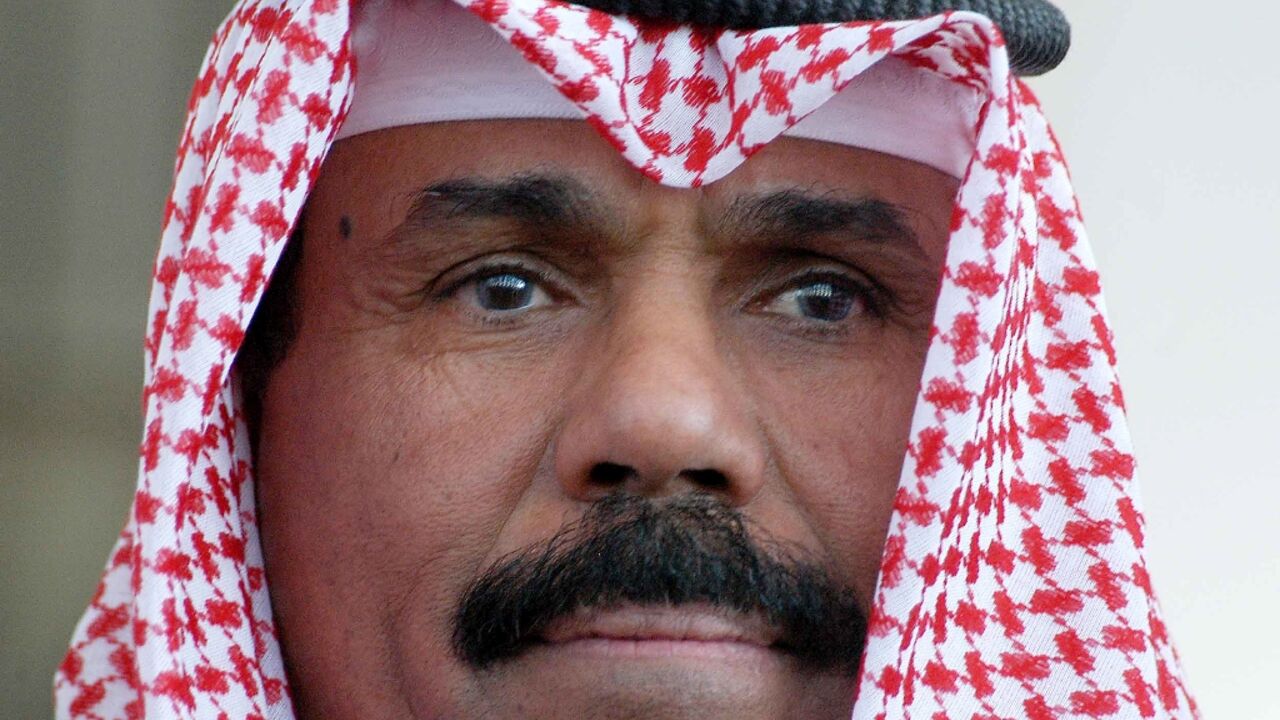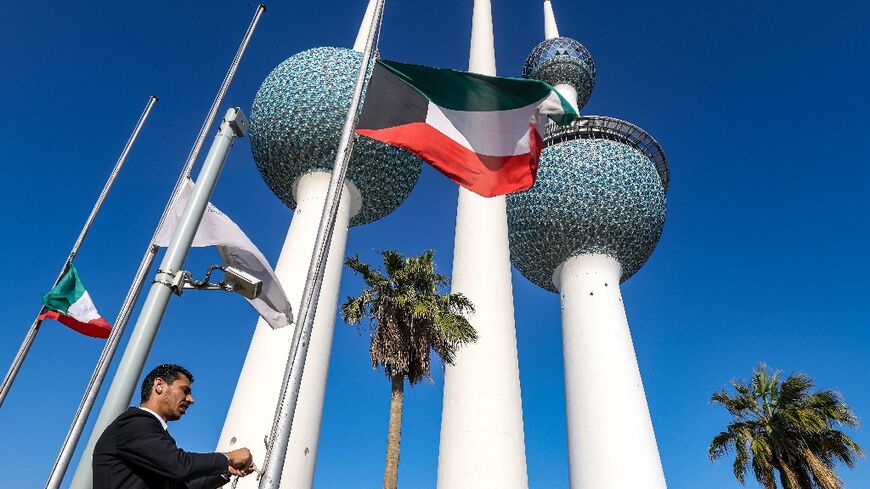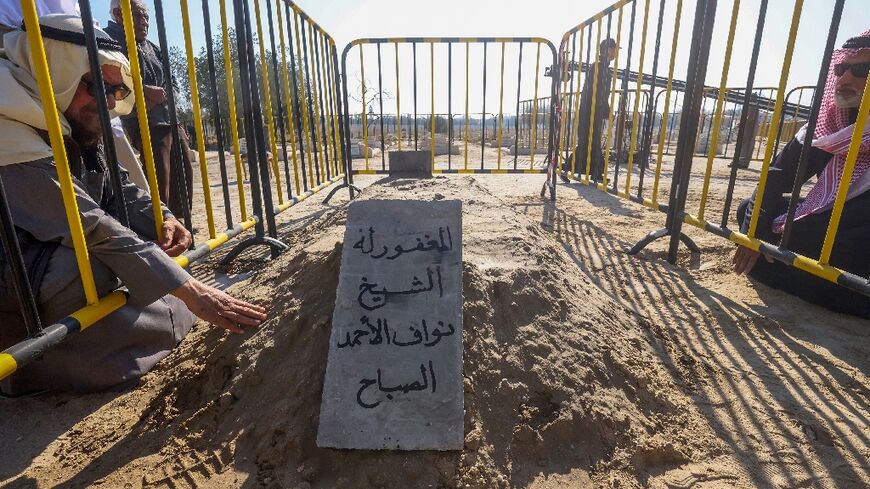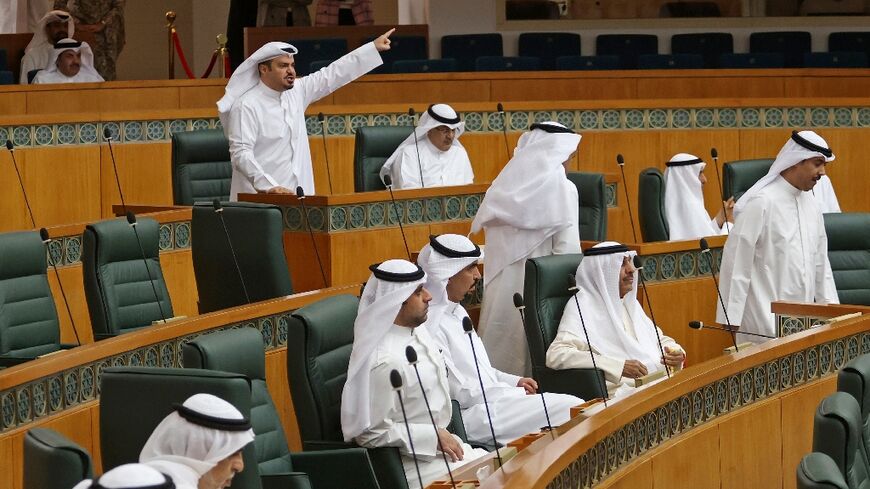Kuwait's Sheikh Nawaf: a short but tumultuous reign

Sheikh Nawaf al-Ahmad Al-Sabah was Kuwait's mild-mannered emir for just three years but spent decades in senior posts through the House of Sabah's tumultuous rule of the oil-rich state.
Sheikh Nawaf, who died on Saturday aged 86, was defence minister when Iraq invaded in 1990, setting off a war that drew in armies from around the world to end the occupation.
And he was interior minister when Kuwait faced a severe threat from Islamist militants in 2005.
The episodes deeply marked the country, but Sheikh Nawaf's low-key style meant he remained a popular figure.
He was named crown prince in 2006 by his half-brother Sheikh Sabah al-Ahmad Al-Sabah and took over as emir when the latter died at the age of 91 in September 2020.
In a rare sign of public emotion, he was visibly moved during his swearing-in ceremony in the National Assembly.
"Sheikh Nawaf will be remembered for his unique personal attributes: soft-spoken, devout, modest, low profile," said Bader al- Saif, assistant professor of history at Kuwait University.
- Politics and war -
Born in 1937, Sheikh Nawaf was the fifth son of Sheikh Ahmad al-Jaber Al-Sabah, who ruled the Gulf kingdom from 1921 to 1950.
He received secondary schooling in Kuwait but did not go on to higher education and started his political career at 25 as governor of Hawalli province, where he remained until 1978.
He was interior minister for the following decade, before taking over as defence minister in 1988.
Two years later Iraq invaded Kuwait, leading to a seven-month occupation and triggering a war involving a US-led international force in 1991.
Following the war, Sheikh Nawaf was moved out of government posts for several years.
But he returned to the cabinet in 2003, again as interior minister -- a tenure that was particularly marked by a series of deadly clashes between Kuwaiti security forces and Islamic militants in January 2005.
- Economic challenges -
On becoming emir, Sheikh Nawaf had to steer the economy through a crisis caused by a fall in oil prices that saw Kuwait's credit rating cut by international agencies in 2020.
He acknowledged the "serious" challenges in his inauguration speech and the government spent heavily -- doubling public debt in 18 months -- to guide the state through the Covid-19 pandemic.
He made few dramatic changes, however.
Kuwait has maintained a hardline stance on Israel, refusing to recognise the country even as Bahrain and the United Arab Emirates have established relations.
It remains a diplomatic rarity in having close relations with both Saudi Arabia and its regional rival Iran.
Mohammed al-Faily, an expert in constitutional law at Kuwait University, said Sheikh Nawaf was generally considered "a calm person who, when it calls for it, can take firm decisions".
There have been questions around the succession to Sheikh Meshal al-Ahmad al-Sabah, another half-brother, who took over as emir on Saturday at the age of 83.
There had been speculation that a younger ruler could be brought forward, and there are bitter divisions within the Sabah family, with some members trading lurid accusations of corruption and political conspiracies.
Kuwait's constitution stipulates only that the ruler should be a descendant of the nation's founder, Mubarak Al-Sabah.
By tradition, the throne had alternated between the Salem and Jaber branches of the family, but that pattern has been broken this decade, with Sheik Sabah, Sheikh Nawaf and Sheikh Meshal all from the Jaber clan.







